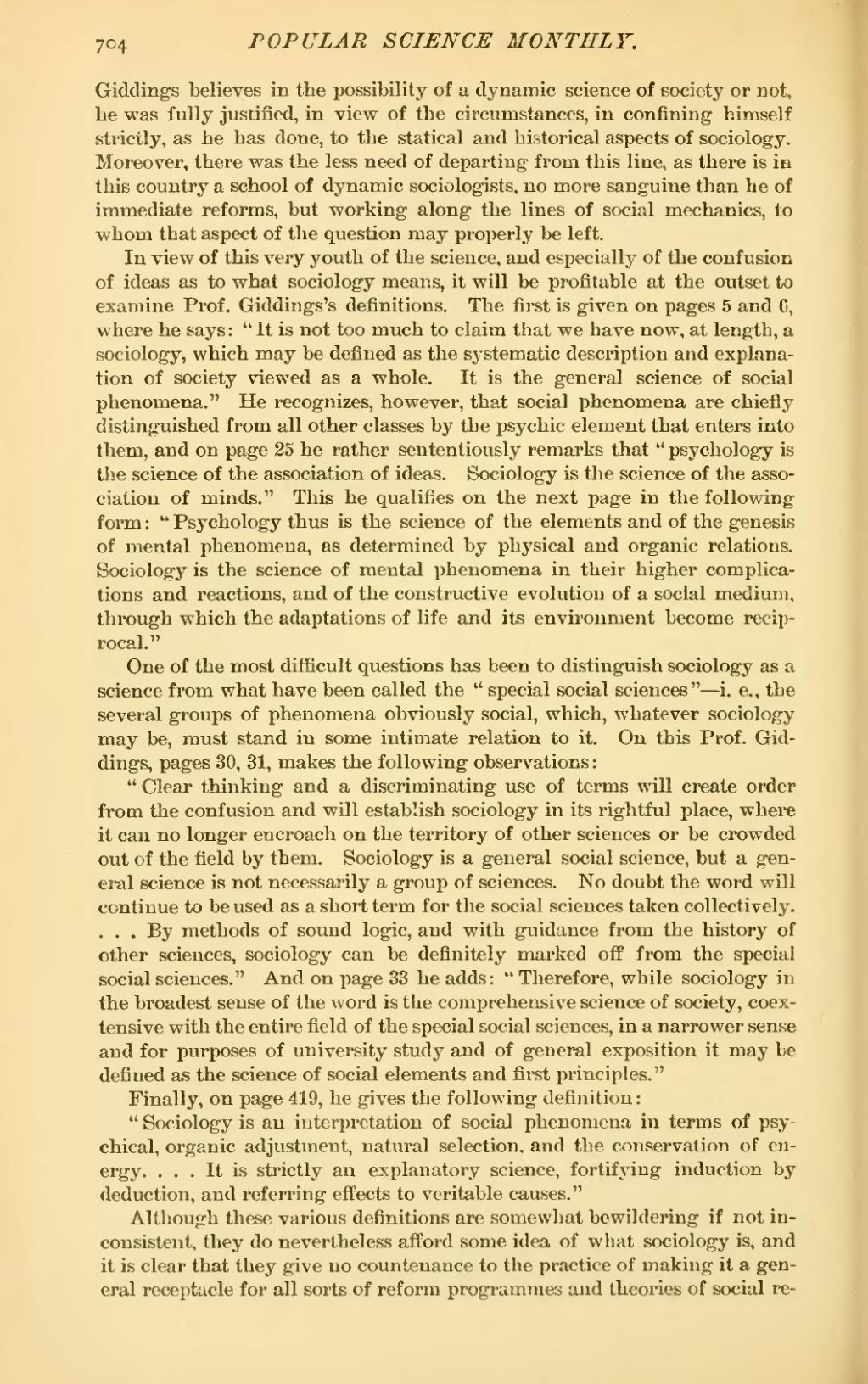Giddings believes in the possibility of a dynamic science of society or not, he was fully justified, in view of the circumstances, in confining himself strictly, as he has done, to the statical and historical aspects of sociology. Moreover, there was the less need of departing from this line, as there is in this country a school of dynamic sociologists, no more sanguine than he of immediate reforms, but working along the lines of social mechanics, to whom that aspect of the question may properly be left.
In view of this very youth of the science, and especially of the confusion of ideas as to what sociology means, it will be profitable at the outset to examine Prof. Giddings's definitions. The first is given on pages 5 and 6, where he says: "It is not too much to claim that we have now, at length, a sociology, which may be defined as the systematic description and explanation of society viewed as a whole. It is the general science of social phenomena." He recognizes, however, that social phenomena are chiefly disting-uished from all other classes by the psychic element that enters into them, and on page 25 he rather sententiously remarks that "psychology is the science of the association of ideas. Sociology is the science of the association of minds." This he qualifies on the next page in the following form: "Psychology thus is the science of the elements and of the genesis of mental phenomena, as determined by physical and organic relations. Sociology is the science of mental phenomena in their higher complications and reactions, and of the constructive evolution of a social medium, through which the adaptations of life and its environment become reciprocal."
One of the most difficult questions has been to distinguish sociology as a science from what have been called the "special social sciences"—i. e., the several groups of phenomena obviously social, which, whatever sociology may be, must stand in some intimate relation to it. On this Prof. Giddings, pages 30, 31, makes the following observations:
"Clear thinking and a discriminating use of terms will create order from the confusion and will establish sociology in its rightful place, where it can no longer encroach on the territory of other sciences or be crowded out of the field by them. Sociology is a general social science, but a general science is not necessarily a group of sciences. No doubt the word will continue to be used as a short term for the social sciences taken collectively. . . . By methods of sound logic, and with guidance from the history of other sciences, sociology can be definitely marked off from the special social sciences." And on page 33 he adds: "Therefore, while sociology in the broadest sense of the word is the comprehensive science of society, coextensive with the entire field of the special social sciences, in a narrower sense and for purposes of university study and of general exposition it may be defined as the science of social elements and first principles."
Finally, on page 419, he gives the following definition:
"Sociology is an interpretation of social phenomena in terms of psychical, organic adjustment, natural selection, and the conservation of energy. . . . It is strictly an explanatory science, fortifying induction by deduction, and referring effects to veritable causes."
Although these various definitions are somewhat bewildering if not inconsistent, they do nevertheless afford some idea of what sociology is, and it is clear that they give no countenance to the practice of making it a general receptacle for all sorts of reform programmes and theories of social re-
